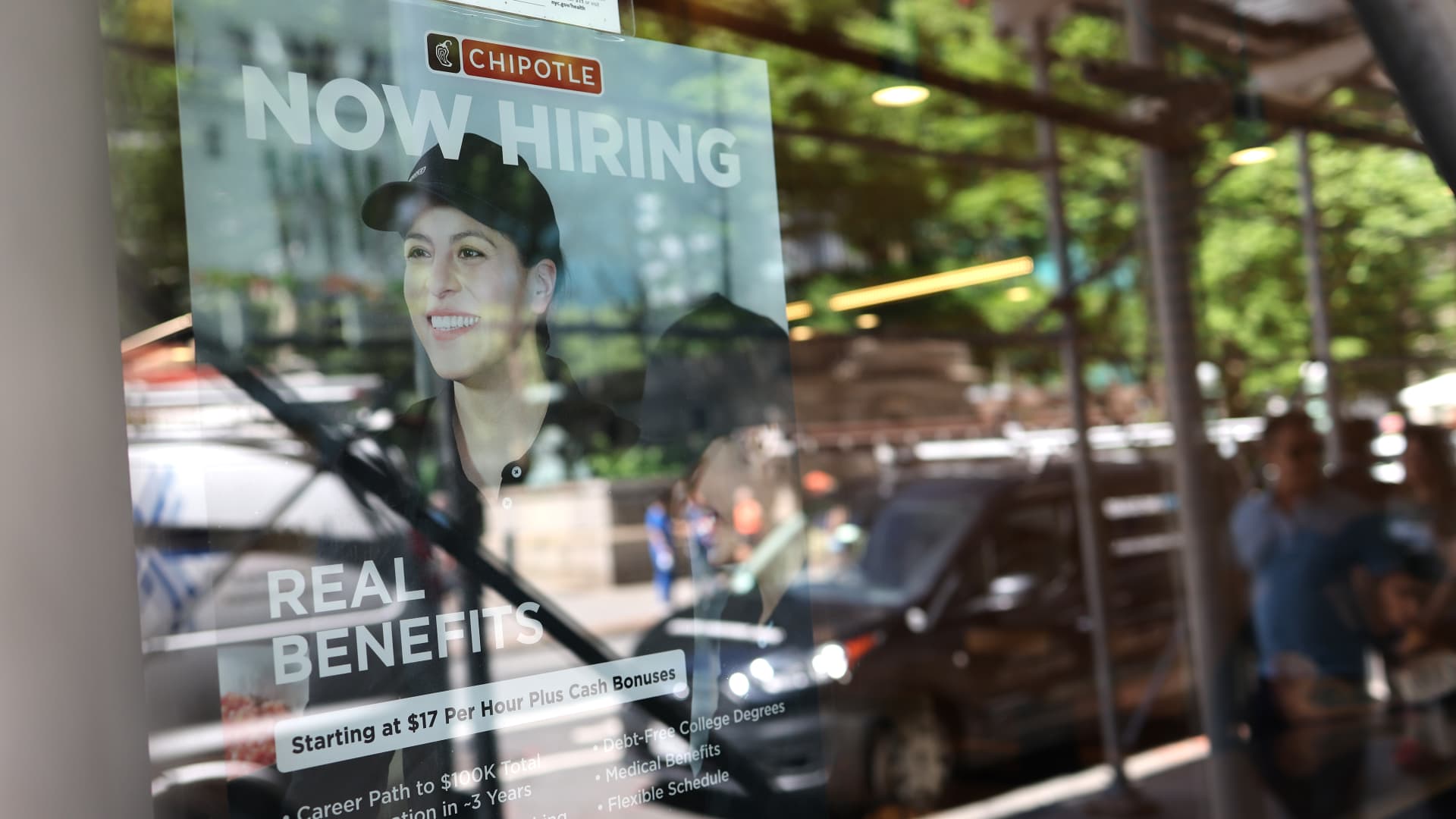Private job growth slowed further in July while the pace of wage gains hit a three-year low, payrolls processing firm ADP reported Wednesday.
Companies added just 122,000 jobs on the month, the slowest pace since January and below the upwardly revised 155,000 in June. Economists surveyed by Dow Jones had been looking for a gain of 150,000.
ADP also reported that wages for those who stayed in their jobs increased 4.8% from a year ago, the smallest rise since July 2021 and down 0.1 percentage point from June.
“With wage growth abating, the labor market is playing along with the Federal Reserve’s effort to slow inflation,” said ADP’s chief economist, Nela Richardson. “If inflation goes back up, it won’t be because of labor.”
Futures tied to major stock indexes added to gains following the report while Treasury yields fell.
There was more positive inflation news Wednesday, as the Labor Department’s Bureau of Labor Statistics reported that the employment cost index, an indicator Fed officials watch closely, increased just 0.9% in the second quarter, according to seasonally adjusted figures.
That was below the 1.2% acceleration in the first quarter and the Dow Jones estimate for a 1% increase.
Both reports could add to the likelihood that the Fed will signal a September rate cut when it concludes its two-day meeting later in the day.
Job growth was heavily concentrated in two sectors — trade, transportation and utilities, which added 61,000 workers, and construction, which contributed 39,000. Other sectors seeing gains included leisure and hospitality (24,000), education and health services (22,000), and other services (19,000).
Several sectors reported net losses on the month. They included professional and business services (-37,000), information (-18,000), and manufacturing (-4,000). Companies that employ fewer than 50 people also registered a loss, down 7,000 in July.
Geographically, the job gains were concentrated in the South, which saw a gain of 55,000, while the Midwest added just 17,000.
The ADP report comes two days before the Labor Department’s Bureau of Labor Statistics releases its nonfarm payrolls count, which, unlike the ADP tally, includes government jobs. The two reports can differ substantially, with ADP overshooting the BLS estimate of 136,000 for private payrolls in June.
Economists expect job growth of 185,000 in July, down from 206,000 in June, with the unemployment rate holding steady at 4.1%.
Correction: This story has been updated to correct the name of the Labor Department’s Bureau of Labor Statistics.

 Accounting1 week ago
Accounting1 week ago
 Finance1 week ago
Finance1 week ago
 Personal Finance1 week ago
Personal Finance1 week ago
 Blog Post1 week ago
Blog Post1 week ago
 Accounting1 week ago
Accounting1 week ago
 Economics1 week ago
Economics1 week ago
 Personal Finance1 week ago
Personal Finance1 week ago
 Personal Finance1 week ago
Personal Finance1 week ago






















